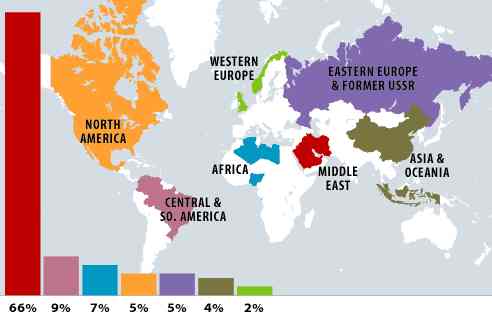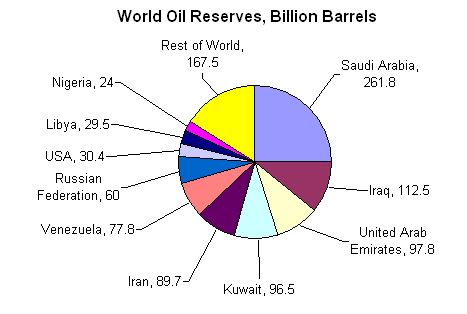|
HYDROGEN WORLD NAVIGATION - $$$$
|
|||||||||||||||||||||||||||||||||||||||||||||||||||||||||||||||||||||||||||||||||||||||||||||||||||||||||||||||||||||||||||||||||||||||||||||||||||||||||||||||||||||||||||||||||||
|
The 'Hydrogen Expedition' would have been the first circumnavigation of the globe in a hydrogen fuel cell powered boat. The state-of-the-art boat that will be used for the circumnavigation, at just under 24 ft, will also be the smallest powerboat to complete an around-the-world voyage. The record setting adventure will be an international event, and once complete, it will be the most impressive demonstration ever of the capabilities of a hydrogen fuel cell.
A Fuel Cell Stack
The expedition was the brainchild of Joseph F. Sahid, an eighteen year old from New York City. A lifelong boatman and a passionate advocate of alternative energy, he hopes to single-handedly pilot the hydrogen-fuel-cell-powered boat on the circumnavigation and to use The Hydrogen Expedition as a means to publicize the advantages of hydrogen fuel cells in order to expedite the development of the “hydrogen economy.” The Hydrogen Expedition became Energy-Quest.
Energy-Quest (formerly The Hydrogen Expedition) was an organization that sought to educate the public about the risks of an impending energy crisis due to the current worldwide dependence on fossil fuels and the benefits of energy conservation and the use of renewable energy sources. It intended to do so through a series of three record-setting ocean voyages
Now, as concerns about the current global energy situation grow and as a steadily increasing number of people are looking towards hydrogen fuel cells to meet the growing human demand for energy, The Hydrogen Expedition has the potential to draw large scale worldwide media attention. Already, several newspapers, including The Boston Globe, have run articles about the expedition, and many more articles, TV spots, and possible book and movie deals are being planned.
The Sunrider, a model for The Hydrogen Expedition, went around the world using soydiesel fuel
Intent on involving other young people in the expedition, Mr. Sahid has recruited a team of dedicated teenagers to help him organize the voyage. Mr. Sahid and his team are working with various experts and consultants to plan the voyage and to secure sponsors to donate the equipment, funds, and services that are needed to make the planned circumnavigation a reality. Already, the publicity that the trip is expected to generate has attracted the attention of many supporters and sponsors. The organizers of the The Hydrogen Expedition expect that this trend will continue.
CISION PR WEB 27 MAY 2005
- Innovative Energy Project Gains World Famous Endorsements
AROUND THE WORLD IN 80 DAYS ON WATER (WORLD HYDROGEN CHALLENGE) 2024
In 1874 Jules Verne predicted that an energy source derived from water would exceed coal. This was in his book: The Mysterious Island. The 150th anniversary of such prediction is 2024. The table below illustrates a route that would enable a LH2 powered vessel to navigate Around the World in 80 Days.
ZEWT ALORS - It was Jules Verne's character, Philleas Fogg, who suggested it was possible to travel the world in 80 days, in the Reform Club in London. Made into three feature films, the first starring David Niven and Shirley Maclaine: Around the World in 80 Days. Now in 2021, a new study suggests it is possible for a solar and hydrogen powered ship to do so without polluting the planet, being zero emission waterborne transport (ZEWT).
LIMITED LIFE OIL ECONOMY
The world runs on oil. We all rely on a steady supply of it to heat our homes, drive our cars, and keep power flowing through the electric grid. There are, however, several alarming issues related to our dependence on this limited resource.
The use of oil is harming the natural world. Countless studies have connected rising global temperatures, hazardous smog levels and other environmental problems with the release of green house gasses that results from burning oil. Environmental damage, however, is far from the only significant problem relating to the world’s oil dependence.
The world’s supply of oil and is rapidly shrinking. In fact, most experts predict that the inevitable peak in global oil production, the point at which half of the ultimately recoverable oil will have been produced, will occur in the next 10 to 20 years. As the availability of oil shrinks, the price of this precious resource will skyrocket.
Gas Prices
Equally disturbing, the oil production in countries outside of the Middle East will peak well before those in the Middle East, leaving, within the next few years, nearly all of the world’s oil reserves in the unstable Persian Gulf region. This centralization of control over the lifeblood of society will further jeopardize the world’s ability to secure affordable oil in the near future.
As is noted by energy expert and Wharton professor Jeremy Rifkin, “In desperation, the United States and other nations could turn to dirtier fossil-fuels — coal, tar sand and heavy oil. But that would only worsen global warming — and imperil the earth’s already beleaguered ecosystems.” However, a better alternative exists: Hydrogen.
Hydrogen is the most basic and abundant element in our universe, and an innovative device called a “fuel cell” can convert it into a steady stream of energy, emitting only water and heat as byproducts. With essentially no moving parts, hydrogen fuel cells are much more reliable than internal combustion engines, and they operate virtually silently. They can produce energy from hydrogen more efficiently than any internal combustion engine can from produce energy from oil. With all of this in mind, most experts predict that hydrogen fuel cells will revolutionize the way the world is powered.
The envisioned economy of the future has been dubbed “The Hydrogen Economy.” It will likely look very different from today’s economy. Wind farms, solar farms, hydroelectric damns, and nuclear facilities will provide a virtually never-ending stream of energy that will be used to electrolyze (to split) water into hydrogen and oxygen. The hydrogen created in this process will then be used to “feed” fuel cells in cars, businesses, and homes. Rather than receiving energy through power lines from fossil-fuel burning plants far away, most people will be able to produce their own clean energy efficiently and cheaply from local fuel-cell power stations.
They will be able to sell off extra energy their fuel cells produce on a decentralized electric grid. The air will be cleaner and the streets will be quieter. All the while, by eliminating dependence on Middle East oil, hydrogen fuel cells will help advance worldwide political stability.
The World's Oil Reserves
“The Hydrogen Economy” will be a tremendous advance from the status quo. It will, however, take many years and billions of dollars to develop. Before the hydrogen economy is a reality, the world’s infrastructure must be rebuilt. Massive solar panels, wind turbines, and damns, along with a network of hydrogen fueling stations, must be constructed. Technology must to be developed in order to make fuel cells, which currently cost many times more than internal combustion engines, more affordable.
Recognizing this, governments and companies from around the world have begun to invest in hydrogen fuel cell development. President George W. Bush has declared hydrogen a national priority.[6] But less is being done to stimulate the development of the hydrogen economy than can and should be.
The entrenched oil and natural gas industries are struggling to slow the development of the hydrogen economy. Simply said, they want to remain in business for as long as possible. Also, while oil and natural gas remain affordable, governments and companies are hesitant to invest billions of dollars to develop technologies that will probably begin to reach consumers well after the next election or quarterly report is due.
President George W. Bush declared hydrogen a national priority
Unfortunately, if the development of the hydrogen economy is not accelerated, the world will be making a serious mistake. The longer we rely on fossil fuels, the more irreversible damage we will do to the environment, the longer we will remain vulnerable due to our dependency on Middle East oil, and the more expensive and difficult it will become to create the hydrogen economy. Rather than postpone the inevitable development of the hydrogen economy, we ought to work to maximize our investment in its development now. If we do so, we will maximize the benefit we will receive from hydrogen fuel cell’s clean, renewable, and efficient energy.
We hope that The Hydrogen Expedition will bring these issues to the forefront of public discourse:
Campbell, Colin J. and Laherrčre, Jean H.. “The End of Cheap Oil”. Scientific American. March 1998 . Porter, Adam. “Is the World’s Oil Running Out Fast?”. BBC News. 7 June, 2004. Rifkin, Jeremey. The Hydrogen Economy. Putnam Press. 2002. http://www.whitehouse.gov/news/releases/2003/01/20030128-19.html
LINKS:
>T.H.E.
Prospectus (.pdf)
World Oil Reserve, Billion Barrels
|
|||||||||||||||||||||||||||||||||||||||||||||||||||||||||||||||||||||||||||||||||||||||||||||||||||||||||||||||||||||||||||||||||||||||||||||||||||||||||||||||||||||||||||||||||||
|
This
website is copyright © 1991- 2021 Electrick Publications. All rights
reserved. The bird logo
|






